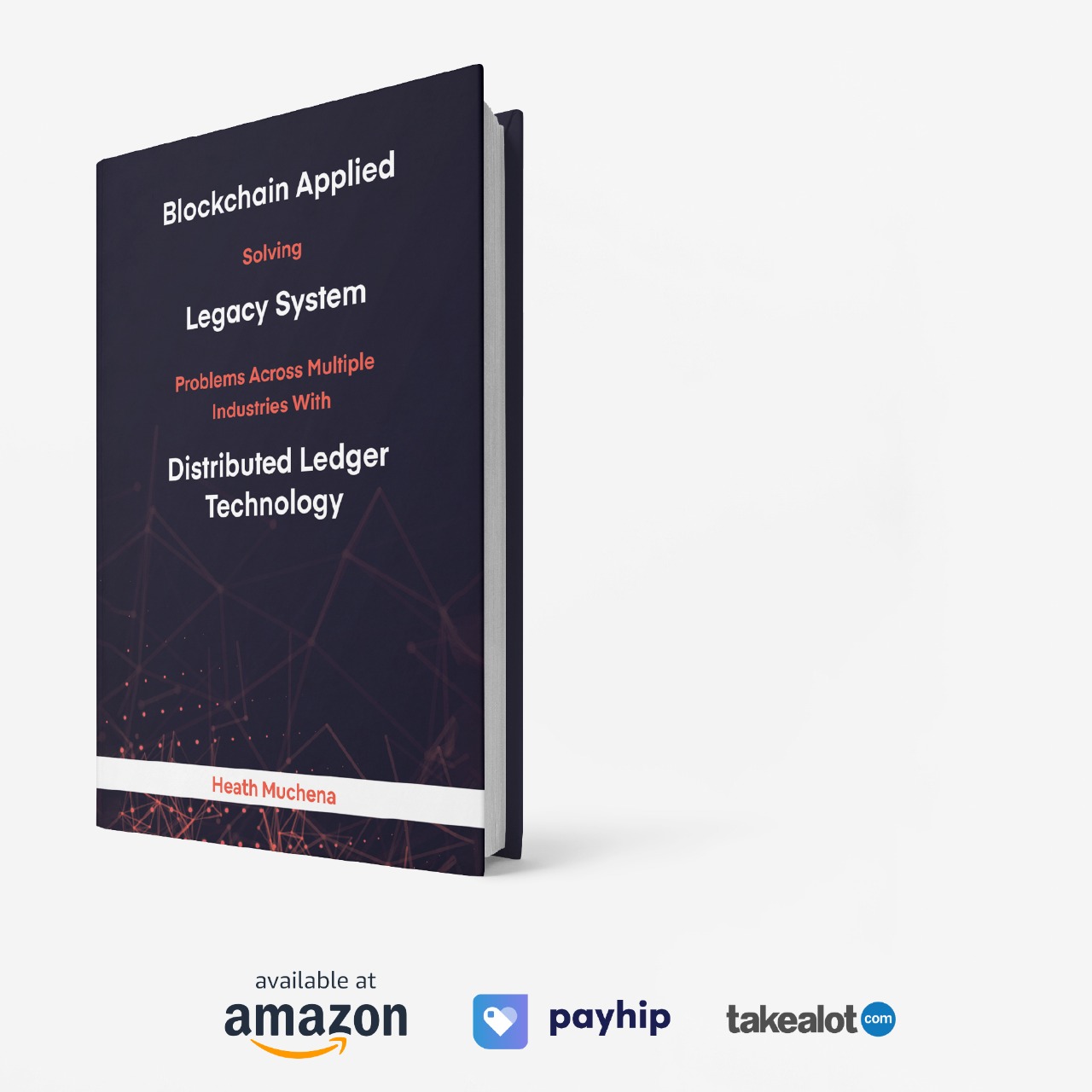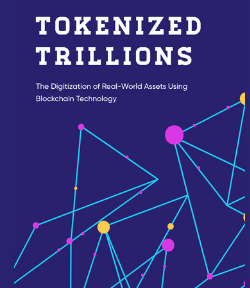
How to Hedge Against Bank Failures & Safeguard Your Savings | Bitcoin vs Dollar | Self-Custody vs Banking
Is it Safer to Save Your Money in Bitcoin or a Bank?
Is it better to self-custody money or keep it in a Bank?
Storing money in a bank means that you are entrusting your funds to a financial institution, which is responsible for safeguarding and managing them on your behalf. Banks typically offer a range of services and products, such as savings accounts, checking accounts, credit cards, and loans, and provide various security measures to protect your funds, such as FDIC insurance, fraud detection, and encryption.
On the other hand, self-custody or non-custodial crypto wallets allow you to store your funds directly on your own device or computer, without the need for a third-party custodian such as a bank. This gives you full control over your funds and eliminates the risk of them being lost or stolen by a custodian. However, it also means that you are solely responsible for securing your funds, which can be challenging for inexperienced users.
One of the biggest differences between bank storage and self-custody or non-custodial crypto wallets is the level of risk involved. While banks are generally considered to be relatively safe and secure, they are not immune to fraud, hacking, or other types of risks. Self-custody or non-custodial crypto wallets, on the other hand, are often considered to be more secure than banks, but they require a higher level of technical knowledge and security awareness to use effectively.
Another important difference is the level of privacy and anonymity provided by each option. Banks are subject to various regulations and laws that require them to collect and share information about their customers, including their identities and transaction histories. Self-custody or non-custodial crypto wallets, on the other hand, offer greater privacy and anonymity, as they do not require the disclosure of personal information.
Ultimately, the choice between storing money in a bank or self-custody or non-custodial crypto wallets depends on a variety of factors, including personal preferences, risk tolerance, and technical expertise. It is important to carefully weigh the pros and cons of each option before making a decision.

A Matter of Perspective
Whether it is safer to save money in Bitcoin or a bank depends on various factors, including personal preferences, risk tolerance, and investment horizon. Here are some compelling arguments highlighting strategic, fundamental, historical, philosophical, mathematical, theoretical, and behavioral science perspectives.
Strategic Perspective
From a strategic perspective, Bitcoin offers the potential for high returns and a hedge against inflation, as its supply is limited to 21 million coins. This limited supply means that Bitcoin is a deflationary asset, which may make it more attractive than fiat currency for long-term saving. However, Bitcoin is highly volatile and subject to market fluctuations, which can result in significant losses for investors.
On the other hand, saving money in a bank offers safety, convenience, and accessibility, as well as the potential for earning interest on savings. However, the interest rates offered by banks are often lower than the inflation rate, which means that savings may lose purchasing power over time.
Fundamental Perspective
From a fundamental perspective, Bitcoin and fiat currency are fundamentally different. Fiat currency is backed by the government that issues it and its value is derived from its use as legal tender. Bitcoin, on the other hand, is decentralized and operates on a peer-to-peer network, with its value being determined by supply and demand in the market.
Historical Perspective
From a historical perspective, fiat currency has a long history of devaluation and loss of purchasing power. For example, the US dollar has lost over 95% of its value since the Federal Reserve was created in 1913. In contrast, Bitcoin has only been in existence for a little over a decade, and its value has increased significantly since its inception.
Philosophical Perspective
From a philosophical perspective, Bitcoin offers the potential for financial freedom and self-custody. With Bitcoin, individuals can control their own money without the need for a central authority, such as a bank or government. This can provide individuals with more control over their financial destiny and reduce the risk of government or bank intervention.
Mathematical and Theoretical Perspective
From a mathematical and theoretical perspective, Bitcoin’s underlying technology, blockchain, offers the potential for transparency and immutability. Transactions on the Bitcoin blockchain are recorded on a public ledger that is immutable and cannot be altered. This can provide greater trust in the financial system and reduce the risk of fraud or corruption.
Behavioral Science Perspective
From a behavioral science perspective, both Bitcoin and fiat currency are subject to human biases and emotions. For example, individuals may be more prone to panic selling during market downturns or may be influenced by groupthink or social influence. As a result, it is important to carefully manage one’s emotions and biases when investing in either Bitcoin or fiat currency.
In conclusion, whether it is safer to save money in Bitcoin or a bank depends on various factors, including personal preferences, risk tolerance, and investment horizon. Bitcoin offers the potential for high returns, financial freedom, and self-custody, but it is highly volatile and subject to market fluctuations. Saving money in a bank offers safety, convenience, and accessibility, but it may offer lower returns and may be subject to inflation risk. Ultimately, it is important to carefully weigh the risks and benefits of both options and to diversify investments across multiple asset classes.
Preserving Purchasing Power
The choice between saving money or preserving purchasing power in crypto or fiat depends on several factors, including one’s financial goals, risk tolerance, and investment horizon. Here’s a detailed analysis of each option.
Saving money in fiat
When saving money in fiat currency, one can earn interest on savings in a bank account or a fixed deposit, which helps to grow their wealth. However, inflation can erode the purchasing power of the savings over time, especially if the interest rate is lower than the inflation rate. For example, in the United States, the inflation rate for 2021 was 6.8%, while the average interest rate on savings accounts was only 0.05%. This means that the purchasing power of savings would have decreased by more than 6.8% if it was saved in a typical bank account.
Moreover, in countries with high inflation rates, holding fiat currency can be even riskier, as the value of the currency can rapidly decrease over time. For example, in Venezuela, the inflation rate in 2021 was estimated to be around 3,000%.
Risks of saving money in fiat
- Inflation risk: Fiat currency is subject to inflation risk, as the value of the currency can erode over time due to factors such as increased money supply, economic uncertainty, and geopolitical risks.
- Currency devaluation risk: In some countries, the government may intentionally devalue their currency to reduce their debt burden or to promote exports. This can result in a rapid decrease in the value of the currency, which can negatively impact the purchasing power of savings.
- Banking risks: Savings in fiat currency are usually held in banks, which are subject to risks such as bankruptcy, fraud, or cyber-attacks. In extreme cases, governments may also freeze bank accounts, making it difficult for individuals to access their savings.
Saving money in crypto
Saving money in cryptocurrency, such as Bitcoin, Ethereum, or other altcoins, can offer potential benefits over fiat currency. Cryptocurrencies are decentralized, and their value is determined by supply and demand in the market. As a result, cryptocurrencies can offer a hedge against inflation, especially if the supply of the cryptocurrency is limited. For example, the total supply of Bitcoin is capped at 21 million coins, which means that it is a deflationary asset, and its value may increase over time.
However, cryptocurrencies are highly volatile, and their value can fluctuate rapidly. For example, in 2021, Bitcoin’s price increased from around $29,000 to a peak of around $64,000 in April, before dropping to around $30,000 by June. This level of volatility can make it challenging to use cryptocurrencies as a store of value or a medium of exchange.
Risks of saving money in crypto
- Volatility risk: Cryptocurrencies are highly volatile, and their value can fluctuate rapidly due to factors such as market sentiment, regulatory changes, and technological developments. This can result in significant losses for investors who are not well-informed or do not have a solid investment strategy.
- Cybersecurity risks: Cryptocurrencies are stored in digital wallets, which are vulnerable to cyber-attacks, hacks, and phishing scams. If a wallet is compromised, the investor can lose their entire investment.
- Regulatory risks: Cryptocurrencies are largely unregulated, which can result in regulatory uncertainty and legal risks. Governments may also introduce regulations that restrict or ban the use of cryptocurrencies, which can negatively impact their value.
Preserving purchasing power in fiat
To preserve purchasing power in fiat currency, one can invest in assets that offer a return that is higher than the inflation rate. For example, stocks, bonds, or real estate may offer a return that can beat inflation over the long term. According to a report by Credit Suisse, global stocks have generated an average annual return of 5.2% above inflation since 1900.
However, investing in assets comes with risks, such as market volatility, economic uncertainty, and geopolitical risks. Moreover, the returns on these assets may not always beat inflation, especially in times of economic downturns.
Preserving purchasing power in crypto
To preserve purchasing power in cryptocurrency, one can invest in a diversified portfolio of cryptocurrencies. This can provide exposure to different assets, such as Bitcoin, Ethereum, and altcoins, and help to reduce the risks associated with investing in a single asset. Additionally, investing in crypto can provide a hedge against inflation, as discussed above.
However, investing in cryptocurrency is highly risky, and the market is largely unregulated. As a result, there is a high risk of losing money, especially if the investor is not well-informed and does not have a solid investment strategy.
In summary, the choice between saving money or preserving purchasing power in crypto or fiat depends on one’s financial goals, risk tolerance, and investment horizon. Saving money in fiat currency can be risky, as inflation can erode the value of savings over time. Saving money in cryptocurrency can offer a hedge against inflation, but it is highly volatile and risky. Preserving purchasing power in fiat currency can be achieved through investing in assets that offer a return that is higher than the inflation rate, while preserving purchasing power in cryptocurrency can be achieved through investing in a diversified portfolio of cryptocurrencies.
Is it better to keep money in Bitcoin or a bank?
Whether it is better to keep money in Bitcoin or a bank depends on various factors, such as personal preferences, risk tolerance, and financial goals. Here are some pros and cons of each option.
Bitcoin
Pros:
- Potential for high returns: Bitcoin is a volatile asset that has the potential to generate high returns over a short period. However, this also means that there is a high risk of losing money.
- Decentralized: Bitcoin operates on a decentralized network, which means that it is not controlled by a central authority, such as a government or a bank.
- Privacy: Bitcoin transactions are generally anonymous and do not require the disclosure of personal information.
- Diversification: Investing in Bitcoin can be a way to diversify one’s portfolio and hedge against inflation.
Cons:
- High risk: Bitcoin is a highly volatile asset that is subject to significant price fluctuations. There is a high risk of losing money if the price of Bitcoin falls.
- Security: Bitcoin is stored in digital wallets, which can be vulnerable to hacking, theft, or loss of access.
- Limited acceptance: Bitcoin is not widely accepted as a means of payment, which can limit its usefulness as a currency.
- Regulatory uncertainty: The regulatory environment surrounding Bitcoin is uncertain, and it is subject to changing laws and regulations.
Banks
Pros:
- Safety: Banks are generally considered to be safe and secure, and they offer various protections, such as FDIC insurance, to safeguard deposits.
- Convenience: Banks offer a range of services, such as checking accounts, savings accounts, credit cards, and loans, that can be convenient for managing one’s finances.
- Accessibility: Banks have a widespread network of branches and ATMs that make it easy to access funds and conduct transactions.
- Regulatory oversight: Banks are subject to strict regulatory oversight, which can provide a level of stability and predictability.
Cons:
- Low returns: Banks typically offer low interest rates on deposits, which can limit the potential for earning returns.
- Fees: Banks often charge various fees, such as account maintenance fees, overdraft fees, and ATM fees, that can eat into returns.
- Limited privacy: Banks are required to collect and share personal information about their customers, including their identities and transaction histories.
- Inflation risk: The low interest rates offered by banks may not keep pace with inflation, which can erode the value of savings over time.

How can you hedge against bank failures
One way to hedge against bank failures is to have self-custody crypto in your portfolio. This means that you have control over your own private keys and do not rely on third-party custodians, such as banks, to store your assets. By doing so, you eliminate the risk of losing your assets due to the failure of a bank or financial institution.
In the traditional banking system, there are systematic risks associated with liquidity crises. In a liquidity crisis, banks may experience a run on deposits, as depositors rush to withdraw their money. This can lead to a bank failure, which can have a cascading effect on the financial system, leading to further bank failures and a contraction in credit.
In contrast, the liquidity in the crypto markets, particularly in the decentralized finance (DeFi) sector, is more resilient in times of crisis. DeFi platforms use smart contracts to execute financial transactions, which are automated and trustless. This means that there is no central authority that can restrict access to funds or freeze assets. As a result, DeFi platforms are more resistant to liquidity shocks, as they are not dependent on a single point of failure, such as a bank or a financial institution.
However, it’s important to note that there are still risks associated with crypto, particularly in the DeFi space. Smart contract bugs, hacks, and cyber-attacks can lead to losses of assets. Moreover, the crypto market is still largely unregulated, which can result in regulatory and legal risks.
In conclusion, having self-custody crypto in your portfolio can be a way to hedge against bank failures, as it eliminates the risk of losing assets due to the failure of a bank or financial institution. While the liquidity in the crypto markets, particularly in the DeFi sector, is more resilient in times of crisis, there are still risks associated with crypto, and investors should carefully weigh the risks and benefits of both traditional banking and crypto before making a decision.






